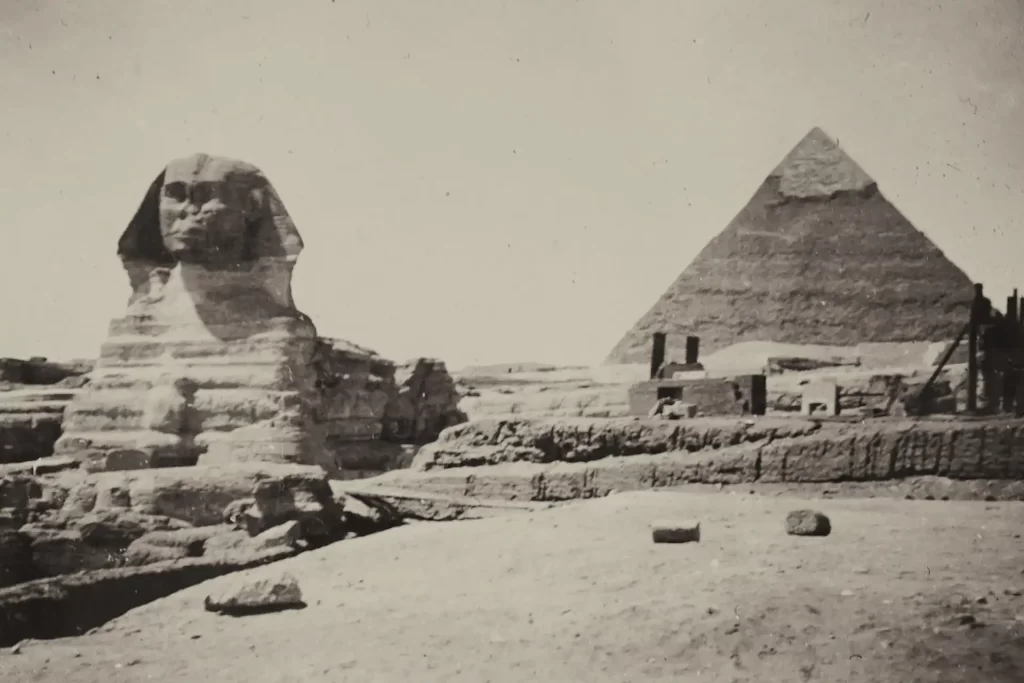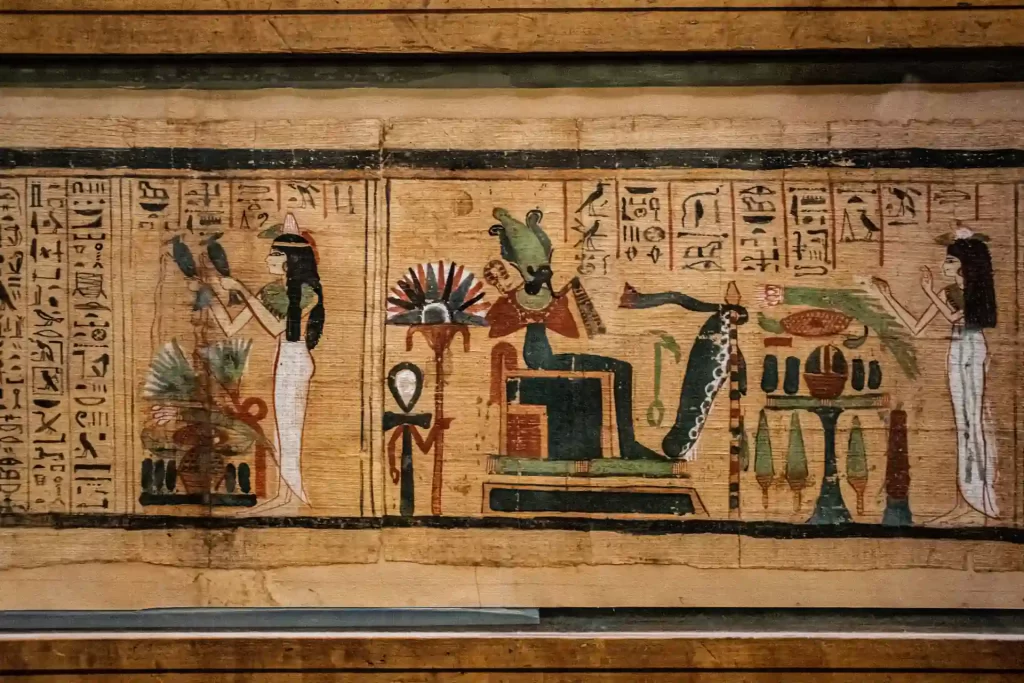In this blog post, we will explore the answers for the most important 8 questions that might come to your mind when intending to learn the language that is spoken by Egyptians. Also, we’ll explore the intricacies of the Egyptian language, its unique characteristics, the best ways to learn and master this ancient tongue and why it is a must-learn for anyone interested in Arabic. Whether you’re a language enthusiast, a student, or simply curious about Egyptian culture, this post will unravel the mysteries and unveil the beauty of Egypt’s language.
In This Article:
The Egyptian Language: A Rich History and Culture
It’s also known as Masri or Egyptian Arabic, is the Egyptian national language and it is spoken by approximately more than 110 million people worldwide. It is a dialect of the Arabic language that holds a special place in the hearts of millions. It is distinct from other Arabic dialects, with its unique vocabulary, grammar, and pronunciation. Head to this article to know more about other Arabic dialects.
With a rich heritage, the history of Egypt’s language dates back to thousands of years. It is an amalgamation of ancient Egyptian, Coptic, and Arabic influences, influenced by the many civilizations that have inhabited Egypt, including the Greeks, Romans, Ottomans, and French. As a result, the language of Egyptians has a unique linguistic tapestry that reflects Egypt’s vibrant identity and has a rich, diverse vocabulary, making it a fascinating language to learn.
The Influence of History on the Egyptian Dialect
The evolution of the Egyptian dialect has been heavily influenced by Egypt’s rich history and geographic position. Centuries of external cultural influences have left their mark on the language in Egypt in subtle yet significant ways. Egypt’s strategic location along major trade and migration routes meant it was exposed to languages from all over the world throughout history. Key historic influences include:
- Ancient Egypt: Coptic, the final stage of the ancient Egyptian language, still has remnants in modern Egyptian vocabulary related to religion, cooking and crafts.
- Greco-Roman: Following Alexander the Great’s conquest, Greek became widely used, leaving some vocabulary. Latin had influence under Roman rule.
- Byzantine: Greek, Coptic and Byzantine liturgical languages influenced the Church.
- Islamic conquest: Arabic became the official administrative language but the native Egyptian population retained their own dialect.
- Ottoman rule: Turkish and other North African Arabic dialects blended in.
- European colonialism: French, Italian and English all had notable linguistic impacts in the 19th-20th centuries.
This melting pot of cultural and linguistic exchanges over millennia have shaped this language into a truly eclectic yet cohesive dialect with its own unique charm. Learning about its history provides valuable context for appreciating Egypt’s language.
Modern Standard Arabic vs. Egyptian Arabic
One question that often arises is whether Egyptian Arabic is different from Modern Standard Arabic. The answer is yes. While Modern Standard Arabic is the formal language used in literature, media, and formal settings across the Arab world, Egyptian Arabic is a colloquial dialect that varies significantly from Modern Standard Arabic.
Egyptians speak Egyptian Arabic in their daily lives, using a unique vocabulary, grammar, and pronunciation. Therefore, if your goal is to communicate with Egyptians or immerse yourself in Egyptian culture, learning their language is essential. Some key differences between Egyptian Arabic and MSA include:
- Vocabulary: Many everyday words in Egyptian Arabic are borrowed from other languages like French, Italian, Turkish and English due to Egypt’s historical interactions with other cultures. This has resulted in a uniquely Egyptian flavor to the vocabulary.
- Pronunciation: Egyptian Arabic has a distinct accent and pronunciation compared to other dialects. For example, the Arabic letters qaf and gaaf are often pronounced as ‘g’ rather than the deeper guttural sounds used in other regions.
- Grammar: Grammatical structures in Egyptian Arabic are simplified compared to MSA. It has fewer verb tenses and a more straightforward sentence structure, making it easier to grasp for beginners. However, it still follows the same basic rules of Arabic grammar, making it a great stepping stone to learning other dialects. For example, dual pronouns (for two persons or objects) are rarely used in Egyptian Arabic.
So while Egyptians speak a form of Arabic as their native language, there are important differences between Egyptian Arabic and the standardized version that make it a unique dialect worth learning in its own right. This language serves as a window into the identity and soul of modern Egyptian culture.
Egyptian Arabic Alphabet: A Fusion of Tradition and Modernity
The Egyptian Arabic alphabet is derived from the Arabic script, showcasing similarities with Modern Standard Arabic (MSA), the formal variant of the language. The written alphabet is the same but spoken Egyptian Arabic has some phonetic idiosyncrasies worth practicing.
The Egyptian dialect includes additional sounds, such as the “hamza (ء)” that is used instead of the letter “Qaaf (ق)” in many words like the word (Monkey) that will be translated to (إرد) in Egyptian language and (قِرد) in Modern Standard Arabic, which lend it a distinctive flavor.
Mastering the pronunciation of key Egyptian alphabet letters is important for clearly communicating in the dialect without unintentionally signaling that you’re a foreigner.
The Importance of Learning Egyptian Arabic

It is a crucial language for anyone interested in Arabic and the Middle East. Also, It is the most widely spoken Arabic dialect, understood by the majority of Arabic speakers worldwide. Additionally, Egypt is an essential cultural and economic hub in the region, making knowledge of the language a valuable asset for business, travel, and cultural immersion.
Furthermore, learning this dialect allows for a deeper understanding of the country’s culture, customs, and traditions. It is a gateway to understanding the rich history of Egypt, from ancient civilizations to modern society. Egyptians are also known for their hospitality and warmth, and learning their language can help bridge cultural gaps and build meaningful connections.
Is Egyptian Arabic the Best Dialect to Learn?
Many language enthusiasts wonder about this question. While there is no definitive answer, This dialect holds a prominent position due to Egypt’s historical and cultural influence in the Arab world. It is widely understood and appreciated by Arabic speakers, making it a practical choice for those interested in communicating with a broader range of people. However, it’s important to note that Arabic dialects vary across regions, and while Egyptian Arabic is widely spoken, it may not be universally understood in every Arab country.
How to Learn Egyptian Arabic?
Now that you understand the significance of the Egyptian language and its unique characteristics, let’s explore the best ways to learn and master this fascinating dialect. While there is no one-size-fits-all approach, we recommend a combination of immersive experiences, language courses, and cultural immersion to truly grasp the essence of this language:
- Egyptian Arabic Course: Enroll in a reputable online Egyptian Arabic course that caters to non-native speakers. These courses are specifically designed to teach you the fundamentals of the language, including grammar, vocabulary, pronunciation, and colloquial expressions. Through interactive lessons, audio recordings, and practice exercises, you can gradually build your proficiency in the Egyptian language. If interested in doing such courses, please head to our Plans & Prices page to know more about the courses we offer. In addition, to know more about what you can expect from an online course, please head to our Egyptian Colloquial Arabic levels description.
- Immersive Experiences: Immerse yourself in Egyptian culture by watching Egyptian movies, listening to Egyptian natives dialogues, and engaging with native speakers. This exposure will not only improve your language skills but also deepen your understanding of Egyptian customs, traditions, and way of life. We recommend listening to the following playlist presented by the AUC Press on Soundcloud of the book “Kallimni ‘Arabi fi Kull Haaga”
- Language Exchanges: Connect with language partners or join language exchange programs to practice speaking Egyptian with native speakers. This interactive approach will allow you to refine your pronunciation, expand your vocabulary, and gain confidence in your conversational skills.
- Cultural Immersion: Travel to Egypt or participate in cultural immersion programs to experience firsthand the beauty and richness of its language. Immerse yourself in the vibrant streets of Cairo, explore ancient landmarks, and engage with locals to truly immerse yourself in the Egyptian culture and language. Check our “Study in Egypt” program to know more about such programs in Egypt.
Egyptian Slang, Sayings, and Expressions

No exploration of Egypt’s language would be complete without delving into its vibrant slang, sayings, and expressions. Egyptians have a unique way of expressing themselves, often using colorful idioms and phrases that add flavor to their conversations. Learning these colloquial expressions will not only help you communicate more naturally but also showcase your understanding and appreciation of Egyptian culture. Some popular Egyptian sayings include:
- “Ok in Egyptian Arabic”: In Egyptian Arabic, “Ok – ماشي” (pronounced: Māshy) is commonly used to mean “allright.” It’s a versatile word that can convey agreement, understanding, or acceptance.
- “How are you in Egyptian Arabic”: To ask someone how they are in Egyptian Arabic, you can say “Ezzayak – إزّيَك” for male and “Ezzayek – إزّيِك” for a female. This is a common greeting used in everyday conversations and shows your interest in the well-being of the person you’re speaking to.
- “Thank you in Egyptian Arabic”: In Egyptian Arabic, “Thank you – شكرًا” is expressed as “Shukran.” This is a simple yet powerful phrase that goes a long way in showing gratitude and appreciation.
- “Welcome to Egypt in Arabic”: To welcome someone to Egypt, you can say “Ahlan wa sahlan – أهلًا وسهلًا” which translates to “Welcome.” This warm greeting is often accompanied by a smile and a genuine sense of hospitality.
- “Hello in Egyptian Arabic”: The common greeting for “Hello” in Egyptian Arabic is “Ahlan – أهلًا” OR “Salamo Alaykom – سلامُ عليكم” (literally, “Peace be upon you”). This friendly salutation is used when meeting someone for the first time or as a general greeting in social settings.
- “Goodbye in Egyptian language”: “Ma’assalama – مع السّلامَة”.
Conclusion
In conclusion, Egypt’s language is a beautiful, rich, and essential language to learn for anyone interested in Arabic and the Middle East. With its unique history, diverse vocabulary, and cultural significance, it offers a gateway to understanding and connecting with the people of Egypt. So why wait? Start your journey to mastering the Egyptian accent and slang today and unlock the wonders of this fascinating language.
Thank you for reading our blog post about the Egyptian language. We hope this has piqued your interest and encouraged you to dive deeper into the world of this beautiful language. Don’t forget to check out our Egyptian Arabic course for a comprehensive and immersive learning experience. Ma’assalama, and we’ll see you in the next post!

